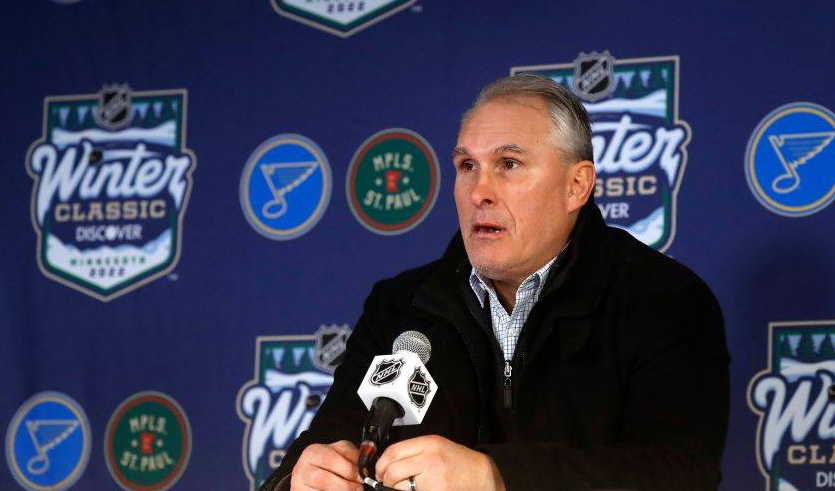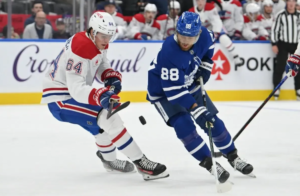
Leafs Coach Craig Berube Responds to William Nylander’s Request For More Ice Time

In the realm of professional hockey, the dynamics of player performance and coaching strategy often create a fascinating narrative. The recent comments from William Nylander regarding his desire for increased ice time have ignited discussions that delve deep into the intricate balance of a coach’s deployment strategy and a player’s ambitions. Following a successful game against the Seattle Kraken, where Nylander notably scored twice, including the game-winner, these conversations have taken center stage. Toronto Maple Leafs head coach Craig Berube’s response to Nylander’s request underscores the complexities of managing talent in a high-stakes environment.
Nylander’s request came as a surprise to many, especially considering his impressive performance this season. His comments prior to the Kraken game suggested a belief that he could contribute even more if given the opportunity. With a solid offensive start to the season, Nylander’s desire for more ice time seemed justified, yet it raised questions about team dynamics and individual roles.
During the game against Seattle, Nylander played 17:34, which placed him fourth among Leafs forwards in terms of ice time. This statistic alone reflects Berube’s strategic approach to managing his roster. Nylander’s contributions on the ice were undeniable; scoring twice in a critical game not only highlighted his skills but also reinforced his point about wanting to play more. In post-game interviews, Berube acknowledged Nylander’s talent, stating, “Willy has played good hockey for us this year. I don’t have a problem with his game.”
However, Berube’s response also hinted at the underlying factors influencing his ice time decisions. The coach emphasized that ice time is a matter of overall team strategy. “I try to use my bench as best I can,” he explained, reinforcing the idea that every player has a role to fulfill. This approach speaks to a larger philosophy in team sports: while individual performance is crucial, it must align with the collective objectives of the team.
The synergy between Nylander, John Tavares, and Max Pacioretty on the second line has been particularly noteworthy. In the last two games, Nylander has found the back of the net three times and has accumulated five points. This offensive output certainly justifies the call for more ice time; however, the nuances of team play, especially in defensive situations, cannot be overlooked. Berube has likely considered Nylander’s overall contribution, including aspects like defensive reliability and situational play, when determining his ice time.
Interestingly, Nylander himself touched upon the subject of defensive play during his comments after practice. He mentioned a desire to return to the penalty kill, a role that would naturally require more ice time. However, his own penalties—such as being in the box during the game against Seattle—complicate this situation. This scenario highlights a critical aspect of team dynamics: a player’s personal desires must align with the needs of the team, especially in high-pressure situations.
Another layer to this conversation involves the role of Mitch Marner. While Nylander seeks more ice time, there is an unspoken balance that Berube must maintain. Marner’s performance is also pivotal, and any adjustments to ice time that favor Nylander could potentially impact Marner’s effectiveness. The coach’s management of ice time is not just a matter of maximizing individual performance; it’s about creating an environment where all players can thrive.
Looking ahead, with the Leafs facing a back-to-back schedule, the distribution of ice time for both Nylander and Marner will be a focal point. Coaches often have to make real-time adjustments based on game flow, player performance, and even fatigue levels. Berube’s approach will likely reflect these considerations as he seeks to maximize his roster’s effectiveness.
Nylander’s aspirations for increased ice time are emblematic of a player’s drive for growth and contribution. It is common for athletes to feel they can make a more significant impact if given the opportunity. This sentiment is especially prevalent in hockey, where momentum can shift dramatically from line to line. Nylander’s comments may not solely stem from a desire for personal accolades but from a genuine belief in his ability to elevate his team’s performance.
Moreover, the pressure on coaches like Berube to balance individual player needs with team strategy cannot be understated. The dynamics of a locker room can be fragile, and decisions about ice time can have ripple effects that influence team chemistry. Berube’s ability to navigate these waters will be critical as the season progresses.
The broader implications of this situation extend beyond Nylander and Marner. They highlight the ongoing evolution of team dynamics in professional sports, where individual talent must be harnessed in a way that promotes overall team success. As the Leafs continue their campaign, it will be essential for players to communicate openly with the coaching staff about their roles and contributions.
However, the dialogue surrounding William Nylander’s request for more ice time reflects a microcosm of the challenges faced by coaches and players alike in the NHL. Coach Craig Berube’s thoughtful responses reveal the complexities of team management, emphasizing the importance of balancing individual ambition with collective goals. As the Leafs navigate their schedule and face new challenges, how they address these dynamics will significantly influence their performance and success in the coming games. Nylander’s desire for more ice time is a testament to his commitment to the team, and how Berube manages this situation will be a crucial element of the Leafs’ journey this season. The interaction between these two key figures exemplifies the delicate interplay of strategy, performance, and the pursuit of excellence that defines professional hockey.

Leave a Reply